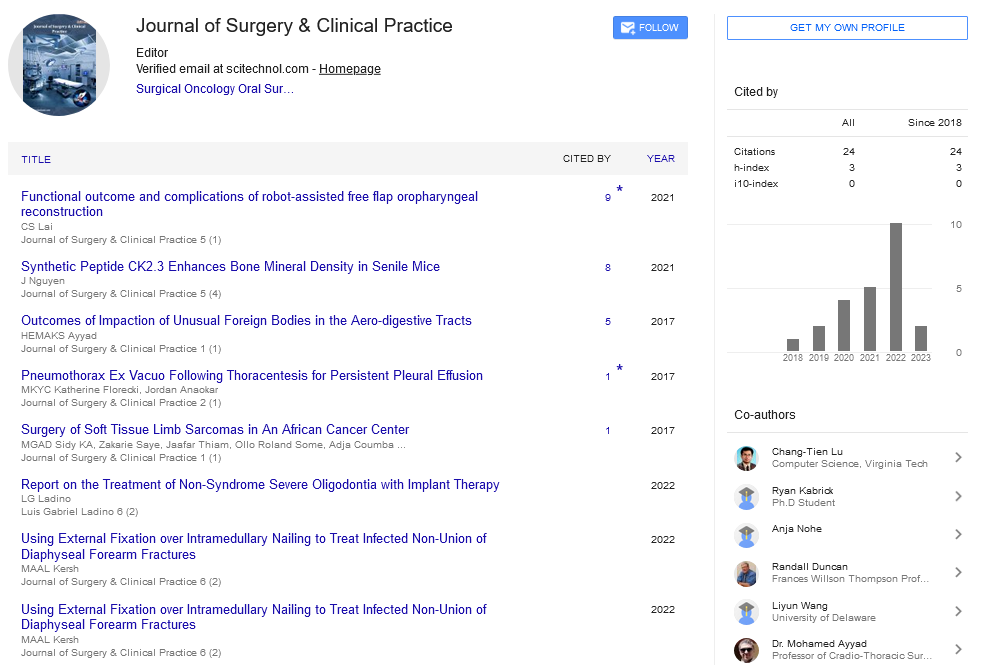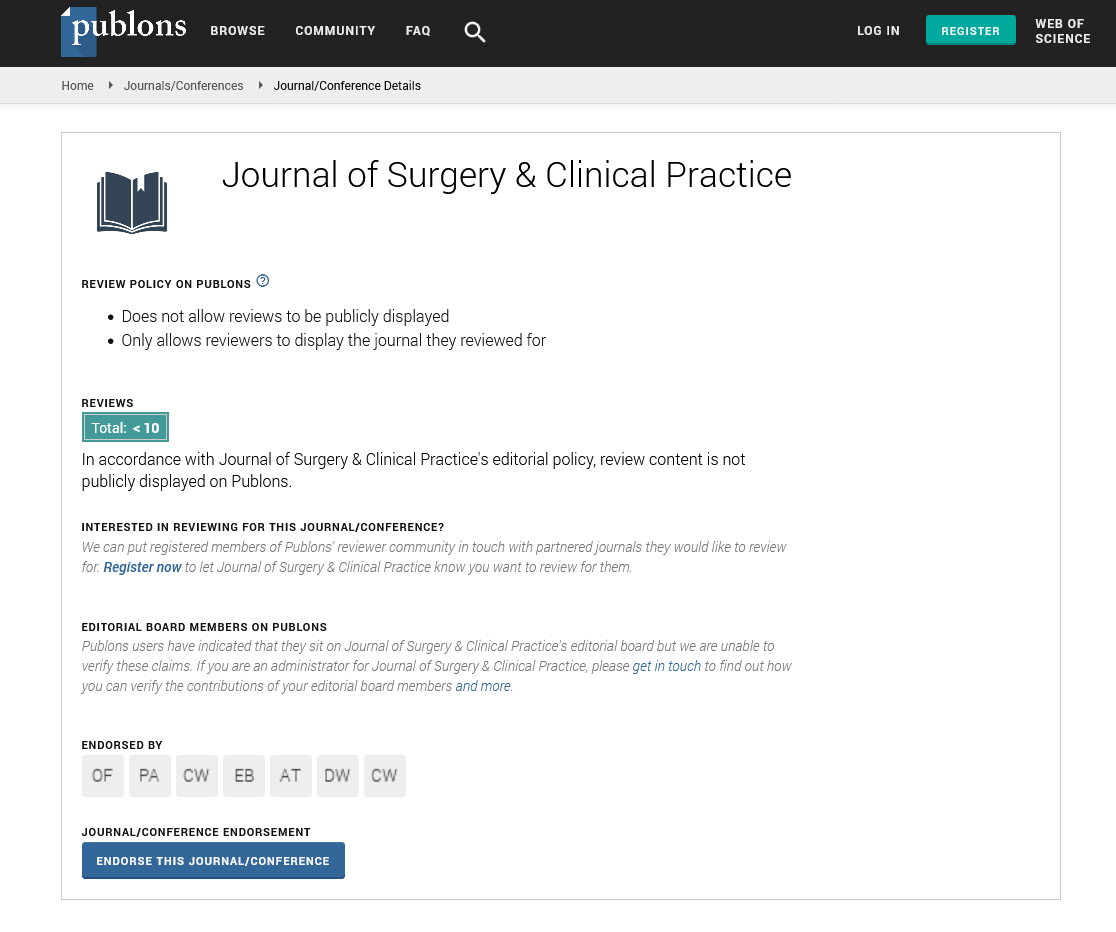Expression levels of obesity - related genes in high fat diet (HFD) induced experimental animals: Impact of combination therapy of anti-obesity drugs
P Venkataraman
SRM Institute of Science and Technology, India
: J Surg Clin Pract
Abstract
Obesity is a global health problem and also a strong risk factor for type 2 diabetes mellitus, cardiovascular diseases and obesity genes play a major role in the central regulation of energy balance. Orlistat (Xenical, Alli) is a synthetic anti-obesity drug approved by European Medicines Association (EMA) and Food and drug administration (FDA). But studies shown, orlistat supplementation causes severe liver and kidney injury. Melatonin, an indolamine, produced by the pineal gland plays a major role in circadian rhythm and one of the powerful antioxidant. Literatures shown, it also exerts control over metabolic functions that determine fat accumulation and obesity and it also protects environmental toxicants induced liver and kidney injury. Garlic (Allium sativum L.), has been used as medicinal and alimentary medicine from ancient period and these has been used extensively worldwide especially in countries like India. Studies reported garlic and its constituents have shown the various biological activities especially against cardiovascular disease due to its blood lipid-lowering, antithrombosis, antioxidant effects and inflammatory response. Diallyl trisulphide (DATS), a natural product from garlic have gained attention in many biological activities. Based on literatures and to compensate the orlistat induced side effects, we propose to study the expression levels of obesityrelated genes in high fat diet (HFD) induced experimental animals and also to see the impact of melatonin alone and in combination with DATS supplementation compared to orlistat alone therapy. We studied mRNA and protein expression of KSR2, IRX3, FTO and Neuropeptide Y by real time PCR and western blot method in liver, adipose tissue and brain of experimental animals along with antioxidant and liver function parameters. Histological observations of liver and adipose tissue were also studied. Based on results we found that both the melatonin and DATS alone and its combination with orlistat therapy is efficacy and safety when compared to orlistat alone therapy. This study determined the clinical usefulness of melatonin and DATS as supplemental therapeutic agents in obesity induced liver and kidney dysfunction as well as in orlistat therapy and it may help in providing the therapeutic options to tackle the obesity without causing side effects.
Biography
P Venkataraman has completed his MPhil degree from department of Endocrinology, University of Madras, Chennai, India and awarded PhD degree at the age of 32 years from the same department. At present he is working as an Assistant Professor in Department of Medical Research, SRM Medical College Hospital and Research Centre, SRM University, Chennai, INDIA. He has an extraordinary ability in the field of Molecular, Environmental and Neuroendocrinology. He has published his research works in 41 international peer reviewed journals especially Journal of Nutritional biochemistry, Endocrine research, Neurotoxicology, International Journal of Developmental Neuroscience, Neuroscience Research, BBA Clinical, Obesity medicine, Biomedicine and Pharmacotherapy. He is the reviewer in reputed journals especially Biomedicine and Pharmacotherapy, Comparative Clinical Pathology and Reproductive Sciences. He is also the editorial board member in Journal of Experimental and Integrative Medicine and Journal of clinical and Molecular endocrinology. He has participated and presented many research papers in International and National conferences in the field of Reproductive and comparative endocrinology and environmental toxicology. He served as a resource person in two national workshops (DST, DBT, ICMR and CSIR sponsored) entitled, “Techniques in molecular and cellular endocrinology”, organized by Department of Endocrinology, University of Madras on 2010 & 2013. He is supervising 8 PhD students and among them two students got PhD degree.
E-mail: venky_prabhu@hotmail.com
 Spanish
Spanish  Chinese
Chinese  Russian
Russian  German
German  French
French  Japanese
Japanese  Portuguese
Portuguese  Hindi
Hindi 
